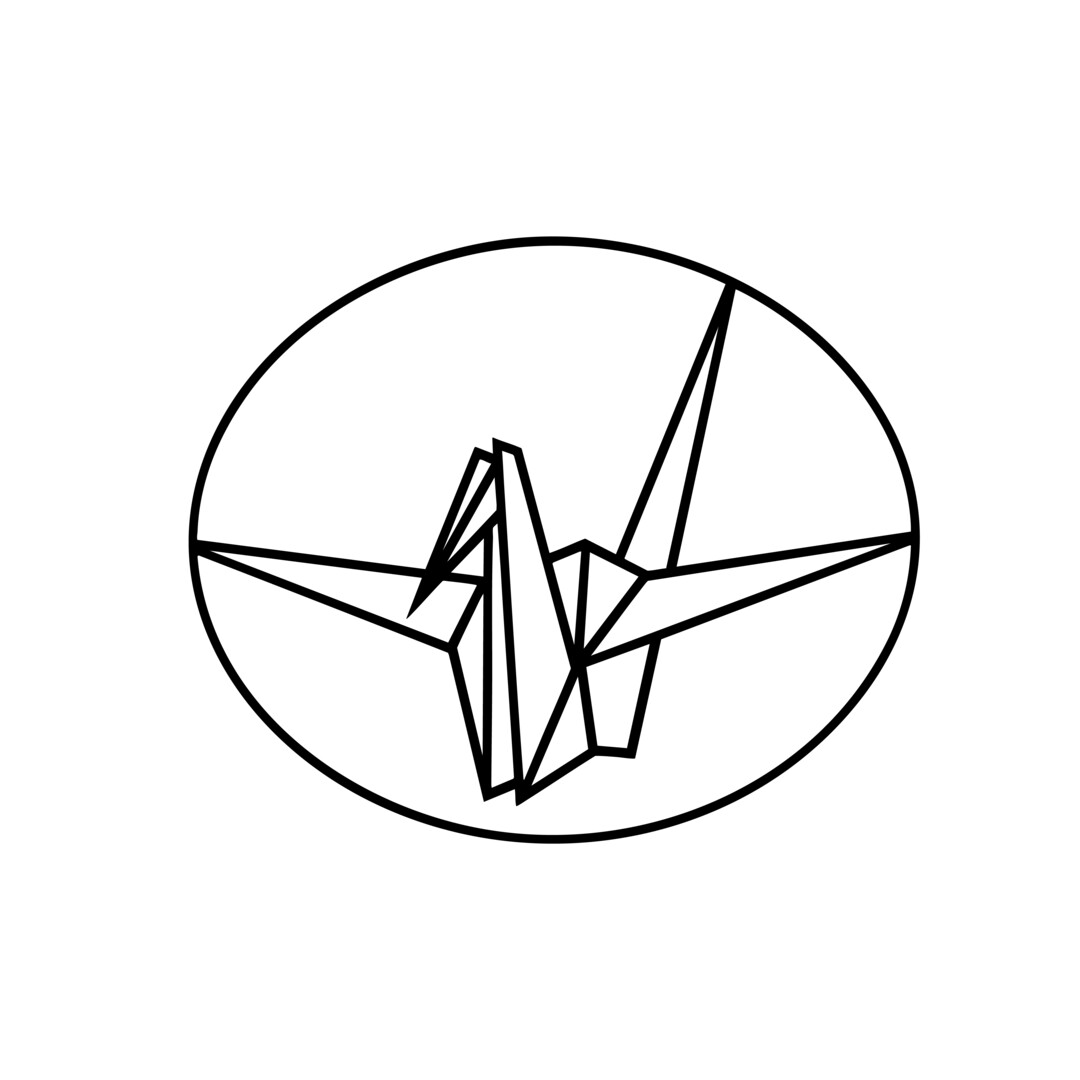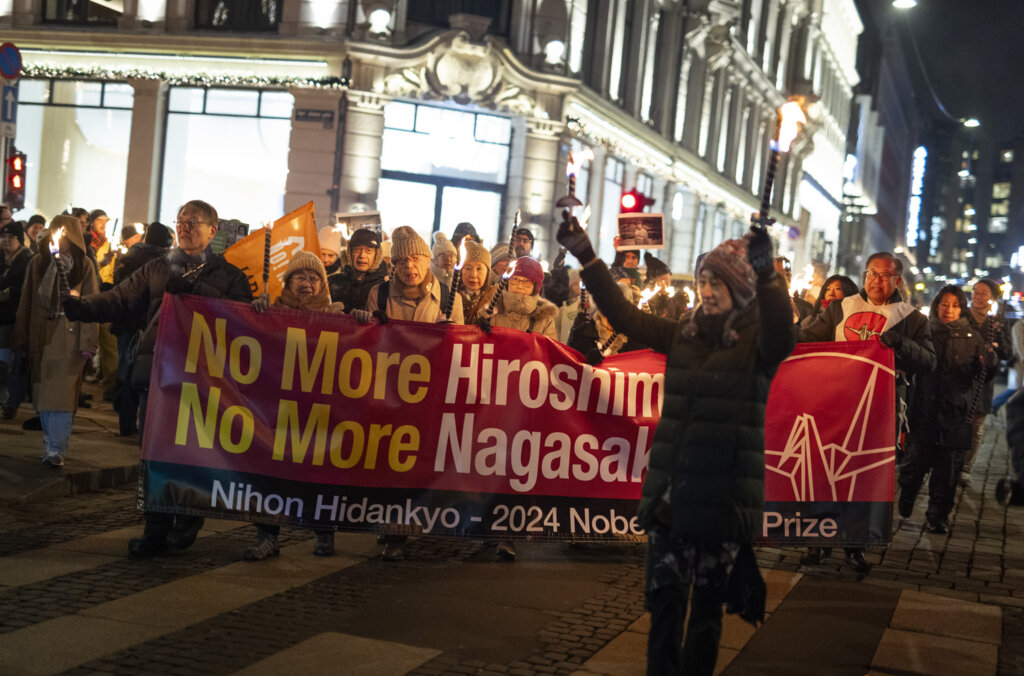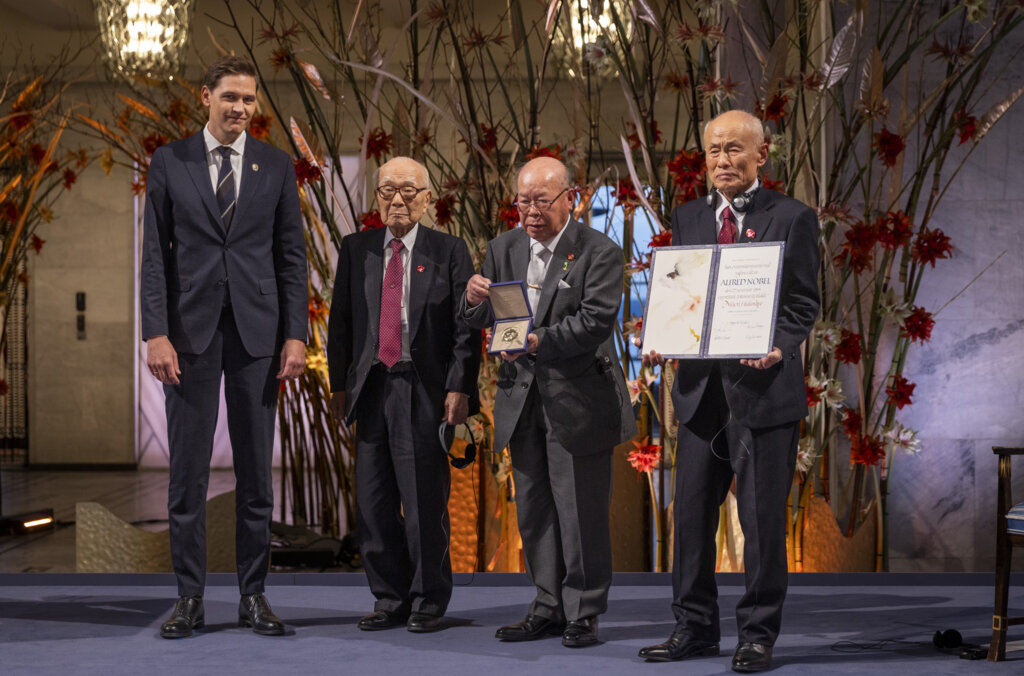Nihon Hidankyo
Speed read
The Japanese organisation Nihon Hidankyo was awarded the Nobel Peace Prize for its efforts to achieve a world free of nuclear weapons and for demonstrating through witness testimony that nuclear weapons must never be used again.

Full name: Nihon Hidankyo
Native name: Nihon Hidankyo
Founded: 10 August 1956
Date awarded: 11 October 2024
Important memory work
Since its establishment in 1956, Nihon Hidankyo has collected and shared thousands of testimonies from survivors of the atomic bombings of Hiroshima and Nagasaki. The organisation has gathered support for resolutions, petitions, and public appeals to remind the world of the horrific humanitarian consequences of using nuclear weapons. Nihon Hidankyo has also sent delegations to the UN and international peace conferences to further its cause.
The prize can be seen as recognition of how memory work and sharing of testimonies have been crucial in shaping the international norm that labels the use of nuclear weapons as morally unacceptable. The committee particularly highlights the efforts of Hibakusha, the survivors in Japan of the only atomic bombs ever used against humans. The commitee states: “Hibakusha help us describe the indescribable, think the unthinkable, and grasp the immense pain and suffering caused by nuclear weapons.”
| Hibakusha A Japanese word that can be translated to “a person affected by a bomb.” The term is used to refer to survivors of the atomic bombings of Hiroshima and Nagasaki in 1945. In 2024, around 100,000 Hibakusha remain. |

"At this moment in human history, it is worth reminding ourselves what nuclear weapons are: the most destructive weapons the world has ever seen. A nuclear war could destroy our civilization"
- Jørgen Watne Frydnes, announcement of the Nobel Peace Prize, 11 October, 2024.
Recognition and warning
The Nobel Committee expressed their wish to honour all those who have chosen to share painful memories and experiences to create hope and foster engagement for peace. The prize can also be seen as a strong reminder that committed individuals do make a difference. It is now up to new generations to continue strengthening “the nuclear taboo”, the strong norm against the use of nuclear weapons that arose in the wake of World War II.
At the same time, the prize serves as a clear warning to nuclear powers and other states seeking to develop nuclear weapons. It highlights the horrific consequences such weapons could have for our shared world.

Geopolitical tensions
The prize for Nihon Hidankyo was given as a prelude to the 80th anniversary of the bombings of Hiroshima and Nagasaki. In a world with increasing geopolitical tensions, the threat of nuclear weapons is once again a factor in conflicts and wars across the globe.
The committee emphasises that today’s nuclear weapons have far greater potential for destruction than those of the past: Strengthening the taboo against the use of nuclear weapons is “a precondition for a peaceful future for humanity.”
The award to Nihon Hidankyo falls in line with a series of prizes that the committee has previously awarded to advocates for nuclear disarmament and arms control.
"The idea that nuclear weapons bring peace is an illusion."
- Mimaki Toshiyuki, co-chair and spokesperson of Nihon Hidankyo to the news agency AFP.
| Disarmament Processes in which states or groups reduce their military forces and weapon arsenals. This applies to both conventional weapons, such as fighter aircraft and tanks, and weapons of mass destruction, such as the atomic bomb. The goal of disarmament is to increase security, remove tensions, reduce the risk of armed conflict, and promote peace. |
Learn more
Watch or read Nihon Hidankyo's Nobel Peace Prize lecture, delivered by Terumi Tanaka, co-chair of Nihon Hidankyo.
Disclaimer: Every effort has been made by the publisher to credit organisations and individuals with regard to the supply of photographs. Please notify the publishers regarding corrections.
Nobel Prizes and laureates
Six prizes were awarded for achievements that have conferred the greatest benefit to humankind. The 12 laureates' work and discoveries range from proteins' structures and machine learning to fighting for a world free of nuclear weapons.
See them all presented here.
